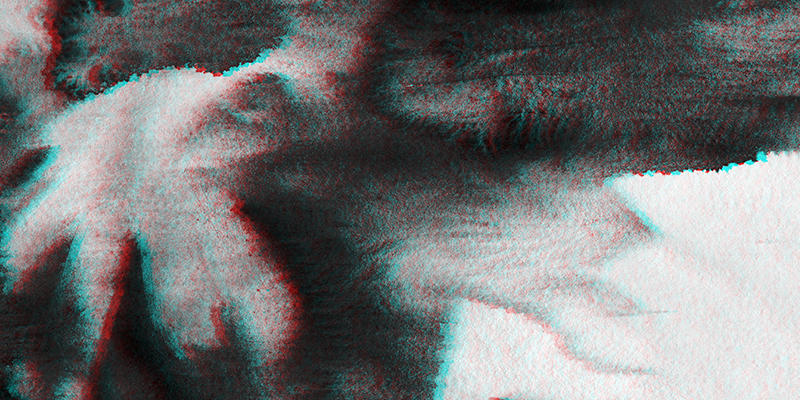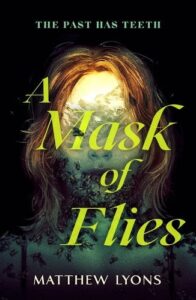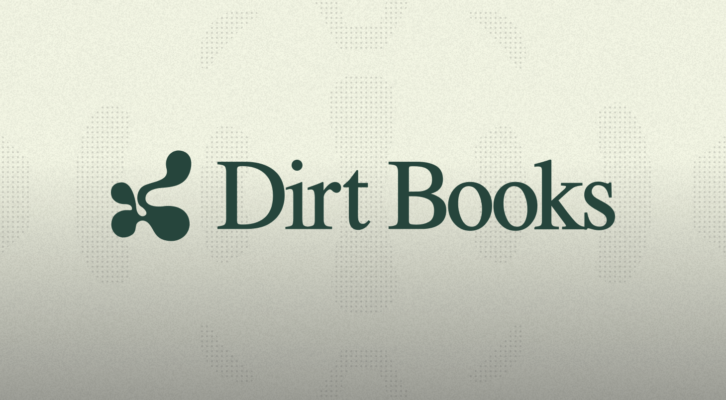Woke Up This Morning
Okay, let’s get this out of the way first thing: The Sopranos is secretly a ghost story.
I know, I know. But seriously, hear me out here. From the first frame of the first episode in Dr. Melfi’s office to that infamous final scene in New Jersey’s legendary Holsten’s diner, the saga of the DiMeo crime family is all about hauntings—both figurative and terribly, heartbreakingly literal.
To those unfamiliar with the details of the source material, The Sopranos may seem at first to be a bog-standard criminal procedural that finished its run nearly twenty years ago (jesus christ, what even is time anymore). But as anyone who’s watched the show start to finish will tell you, scratch just beneath the surface, and The Sopranos reveals itself as a deeply thoughtful, magically-minded story filled with enough ghosts to keep even the most seasoned horror fiend guessing. (In fact, only a few short years back, the horror community’s very own Gretchen Felker-Martin detailed just that in a truly excellent piece for The Outline that you should really read.)
There are very real glimpses of the supernatural throughout The Sopranos’ run: Sal “Big Pussy” Bonpensiero, seasons dead by now, making a blink-and-you’ll-miss-it appearance at the wake for Tony’s mother, Livia. Seasoned killer Paulie Walnuts paying a visit to a dubious medium only to be told things about his murderous past no one but the dead could possibly know. An apparition of the Virgin Mary floating above the stage at the Bada Bing! strip club. The list goes on and on.
But on a deeper level, The Sopranos is all about the things haunting the characters living within its narrative. The ghosts of legacy, of responsibility, of guilt and violence are all over the show. Get comfortable with your own ghosts, people; we’re all haunted here.
Tony Soprano himself is haunted by inescapable memories of his abusive and violent upbringing, and his struggle to reconcile his nostalgia-fueled “good” memories with the gruesome, terrifying realities of the environment he was raised in are mined for no small measure of horror throughout the show’s run. The ever-present specter of DiMeo family associates secretly turning states’ witness hangs over the mafiosos’ every move like a curse or an omen. Hell, in the very first episode, Tony confesses that he’s haunted by the ghosts of made guys from days long past:
“It’s good to be in something from the ground floor. I came too late for that, and I know. But lately, I’m getting the feeling that I came in at the end. The best is over.”
He’s haunted by what was, and impotent to change what is in the face of a modern world that he’s well aware spells his eventual extinction. Tony is an endangered species; one of the last mafia monsters on earth.
Imagine the sheer terror that knowing that must inspire.
But it’s not just The Sopranos that pulls off this particular trick. When taken from the right perspective, every story is a horror story: for henchmen just trying to earn a paycheck, James Bond is a horror slasher with a body count (and, let’s be honest, style points) to rival Jason Voorhees or Michael Myers. Let’s not forget that Dostoevsky’s The Brothers Karamazov, while yes, a nuanced family drama for the ages, also features a cameo from Lucifer himself, discussing the call—and the point—of the pit with Ivan Fyodorovich in the depths of a feverish nightmare. Even Elden Ring (all of Miyazaki’s Soulsbourne games, really) is really just cosmic horror masquerading as vaguely-post-apocalyptic high fantasy.
I’ve written before about horror’s profound genre inclusivity, and let me tell you: once you start looking at your favorite stories through that lens, you can’t really unsee it ever again. But that’s only because horror has always been there, lurking in the shadows of every story, hiding in the attics and the sewers, just waiting to be uncovered.
So why does this keep happening? Why, no matter where you look, can you find horror? Because horror is like cheese or crushed red pepper: it’s good on everything.
Hybrid Horror (Isn’t A Thing)
If you believe the pundits and critics, there’s been a recent trend-shift in recent years toward so-called hybrid horror—meaning horror-focused art that incorporates elements from other genres like crime thrillers, romance, comedy, erotica, and the like. But if we’re being honest with each other (and why wouldn’t we be? We’re friends, after all), unless your name is Edgar Allan Poe, hybrid horror really isn’t a thing.
Allow me to explain.
It’s probably not that hot of a take to say that Poe is really the inception point for modern horror fiction. He casts such a long shadow that, even now, 174 years after the man’s death, everything that followed is in some way, whether small or large, a response to his work. Poe set the template for so much of what makes a good horror story, after all, and it’s absolutely wild to read through the list of narrative tropes that he employed in his fiction—because so many of them are still in use today.
(Side note: There’s also a really compelling argument to be made that, with “Murders in the Rue Morgue,” Poe also invented the modern detective story, but my editors tell me that’s a story for a different article altogether; so go read Olivia Rutigliano’s truly fantastic op-ed on just that when you’re done reading this one.)
No matter how you slice it, horror as we understand it today wouldn’t really exist without Poe, and after him, people everywhere start taking horror in wildly different directions. With Dracula, Bram Stoker decides that horror is best when it’s epistolary and super, super horny. Gaston Leroux makes it sweeping and epic and doomily romantic (or romantically doomed) in The Phantom of the Opera. Robert Louis Stevenson blends it with the fantastical and the scientific. HP Lovecraft makes it paranoid and racist.
The point I’m trying to make here is that from almost the very beginning of what we might consider “modern horror,” people have been blending it with other genres to create something new—and, most of the time, to great success. There’s no such thing as “hybrid horror” because horror’s always been synthesized into something else.
There’s a pretty good reason for that, too.
I’m Dragging a Bunch of Fuckin’ Ghouls Around With Me
Let’s jump back to The Sopranos for just a second.
Part of what keeps me coming back to the show (as both a viewer and a writer) is the way that it focuses so much on the human side of the story it’s telling. Make no mistake, it’s absolutely profane, casually cruel, explosively violent, deeply wounded and, yeah, really, really funny—but only because the people at its center are all that and so much more. The Sopranos was always a story about the day-to-day lives of the people living and working and struggling in the heart of a system in irreversible decline, and in that struggle, their ultimate humanity, however flawed and tarnished, shines brightly through.
That goes double for what they’re scared of. Because we all know what it feels like to be afraid, to be unsure, to be haunted.
To live as a human is to live in fear, because life is absolutely fucking terrifying. That, maybe more than anything, is what unites us as a species—or at least it should. We all have our baggage, and we’ve all been scared to death. Fear is universal. That’s part of what makes horror so compelling: when it’s done right, we empathize with people through their fear, no matter how terrible they may be. So when we see the temperamental sociopaths within the DiMeo crime family scared shitless, we can’t help but see some part of ourselves in them.
Every story has fear built into it. Every well-written character feels scared some of the time. Sure, we might call it “narrative stakes,” but at the end of the day, we’re really just talking about things that characters have a reason to be scared of. Sometimes those things are ghosts, or vampires, or shambling, cosmic hellbeasts, but sometimes they’re more ordinary: growing old or finding yourself cast in the role of caretaker. Mental health crises. Racism and the perils of refugee immigration. Homophobia and homophobic assholes. Religious trauma. Capitalism.
Anymore, using the phrase “elevated horror” in earnest will get you laughed out of pretty much any bar populated with enough horror fans and creators—but, to be fair, I do see why it came about, even if I don’t agree with it. With horror on the rise, the uninitiated needed a way to help them begin to approach and understand the genre as a whole. By painting more obviously-allegorical works as highfalutin “elevated horror,” it allowed them to indulge in and enjoy the genre without feeling like they were slumming it.
Fuck that.
Horror never needed to be “elevated.” It’s always been the genre of metaphor and allegory. Anyone who pretends otherwise is trying to fool themselves—or you.
Just Because the Ghosts Look Different Doesn’t Mean You’re Not Haunted
One last thing about The Sopranos and all its ghosts.
(Also, spoiler alert for a show that just celebrated its 25th anniversary. Just sayin’.)
Late in the series’ final season, Tony starts losing people. Now, this might not seem like that much of a big deal on a show that’s positively flooded with corpses, but this time, it’s different. This time, the people that are dying—or worse, walking away—are those that have kept Tony in power over the course of the show: the deaths of Soprano/DiMeo family associates Eugene Pontecorvo and Vito Spatafore highlight the swift crumbling of the family foundation. An attempted assassination leaves Tony’s devoted consigliere, Silvio Dante, comatose with a grim prognosis; John “Johnny Sack” Sacrimoni, Tony’s New York-based mafia colleague and erstwhile mentor, dies slowly and agonizingly of stage 4 lung cancer in federal prison. Tony’s brother-in-law, Bobby Baccalieri, is shot and killed while shopping for model trains, and Tony himself murders his beloved nephew, Christopher Moltisanti, in the aftermath of a savage car crash. Worst of all? Tony’s longtime therapist, Dr. Jennifer Melfi, fires him as a client, frostily turning her back on the man for good.
Horror runs on isolation, and throughout its final episodes, the narrative expertly flenses away nearly the entire architecture propping up Tony’s life, leaving him as alone and afraid as any horror protagonist.
As Tony sits in the back booth at Holsten’s in the show’s final scene, waiting for his immediate family—the only people to not have abandoned him yet—to arrive, the dread and isolation are crushing. The specter of fate looms ever-larger over the man, all his ghosts rising up together to take their due. And just when you think the tension can’t get any greater—
Well. You’ve probably heard how it ends by now. It’s the same way good ghost stories always do. No haunting is ever really over, after all—it doesn’t matter if you’re a mob boss, a priest, or a camp counselor. Just because the ghosts look different doesn’t mean you’re not haunted.
it doesn’t matter if you’re a mob boss, a priest, or a camp counselor. Just because the ghosts look different doesn’t mean you’re not haunted.There’s a corollary to be drawn here: just as every story is secretly a horror story, every horror story is really about something else. Consider John Carpenter’s The Thing: while rightly regarded nowadays as a stone-cold masterpiece (and, full transparency here, my favorite movie of all time), upon release, The Thing was pretty much universally panned. The complaints go on and on, for anyone with an hour to waste and a functioning Google search bar who cares enough to look. The critics thought it was schlock. They said it was too dark, too nihilistic, too much this and not enough that. Shit, in a recent interview with The Guardian, Carpenter himself even explained that “the film was an enormous failure. I got fired because of it.”
Except, as we’re all perfectly aware, The Thing has so much more going on under the hood than critics thought at first.
Depending on who you ask, The Thing can be read as a metaphor for US/Soviet tensions at the height of the Cold War, the AIDS epidemic, a game of chess, or for any other number of topics. Nobody ever called The Thing with all its allegorical stylings “elevated” or “hybrid” horror—not back then, and certainly not now. Why? Because they don’t need to. The Thing is just horror.
Ultimately, I’d argue that calling horror anything other than just that betrays a core misunderstanding of the genre as a whole. Nobody would ever call Dracula or The Strange Case of Dr Jekyll and Mr Hyde “hybrid horror,” because that core synthesis has been built into the genre from the jump. It’s a feature—not a bug. That fact remains true whether we’re talking about The Thing, or The Fall of the House of Usher, or Pet Sematary, or The Sopranos. Horror can be anything, because horror has always been everything.
Like I said, once you realize that, you really can’t unsee it.
***


















